Andreas Lubitz depression headlines add to stigma
- Published

Talk of the Germanwings co-pilot Andreas Lubitz being "depressed" appears time and time again on Friday's front pages.
"Suicide pilot had a long history of depression - why on earth was he allowed to fly?" demands the Daily Mail.
We still don't know exactly what happened in the final moments of flight 4U 9525. What we do know is that on Tuesday a plane was deliberately driven into the French Alps, killing 150 people.
Parts of the British media who have linked Lubitz's mental health problems to his actions are being accused of being "overly simplistic".
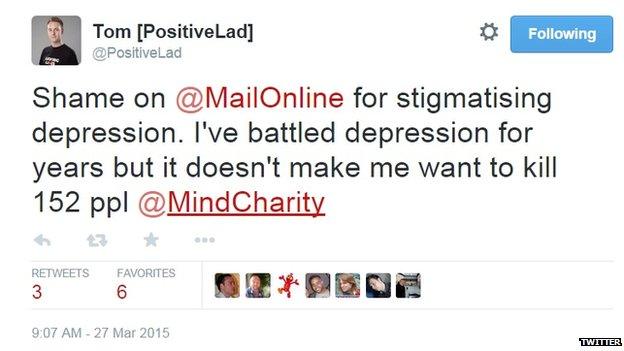
Three leading mental health groups, Mind, Time to Change and Rethink Mental Illness, have released a join statement condemning the "widespread speculation", saying it only adds to the "stigma surrounding mental health problems".
Paul Farmer is Chief Executive of Mind and told Newsbeat: "Everyone is trying to understand what happened in this terrible tragic plane crash, but there is a real danger that a correlation is being made between depression and this act, which is overly simplistic and has no evidence attached to it all.
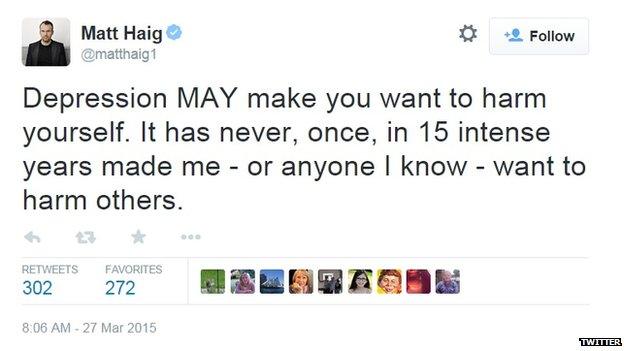
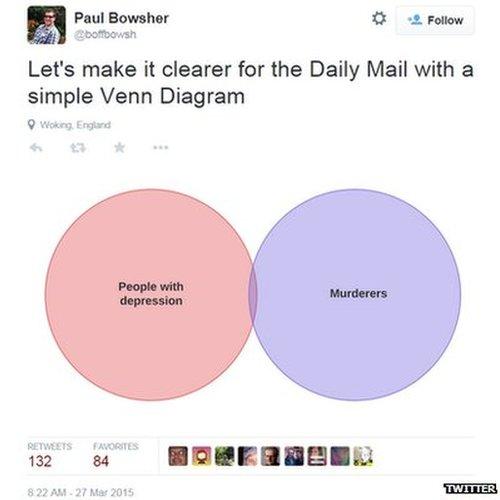
"We all want to understand what happened. It's perfectly reasonable to take individual pieces of information that are beginning to emerge and come up with answers. The danger is that we can't possibly speculate about the individual's situation until we have more control of the facts.
"The impression which can be given is that somehow people with depression are dangerous, where as there's no evidence to suggest that's the case. There are thousands of people who work in stressful and important jobs who battle with depression and do their jobs very well."
#Timetochange has been trending on Twitter with high profile figures like Alastair Campbell tweeting their anger at the coverage.
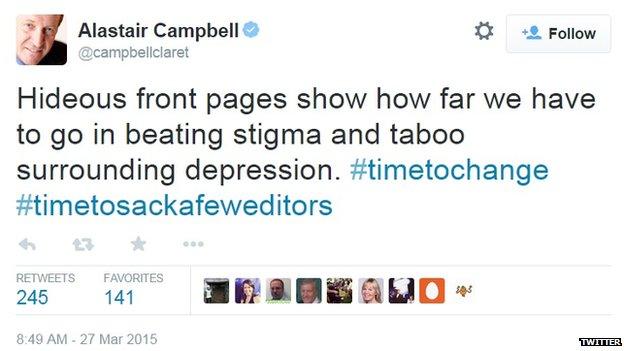
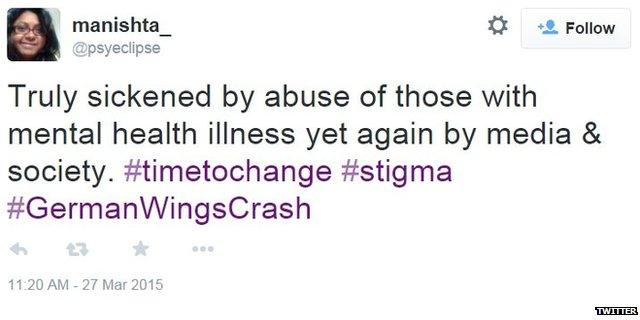
Professor Sir Simon Wessely, President of the Royal College of Psychiatrists, said: "We should be careful not to rush judgements. Should it be the case that one pilot had a history of depression, we must bear in mind that so do several million people in this country.
"Depression is usually treatable. The biggest barrier to people getting help is stigma and fear of disclosure. In this country we have seen a recent fall in stigma, an increase in willingness to be open about depression and most important of all, to seek help.
"We caution against hasty decisions that might make it more difficult for people with depression to receive appropriate treatment. This will not help sufferers, families or the public."
Follow @BBCNewsbeat, external on Twitter, BBCNewsbeat, external on Instagram and Radio1Newsbeat, external on YouTube.